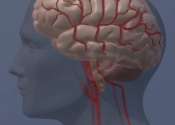Improving treatment for Parkinson's
Parkinson's is a neurodegenerative disease where dopaminergic neurons progressively die in the brainstem. Tremor and difficulties walking are recognizable movement symptoms for many people suffering from Parkinson's. Over ...
Feb 18, 2022
0
116









